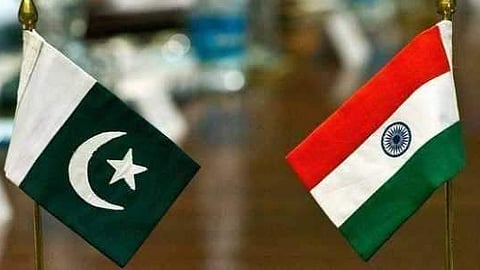

NEW DELHI: In the wake of the recent terror attack in Pahalgam, India is set to push for Pakistan’s re-inclusion in the Financial Action Task Force’s (FATF) grey list during the watchdog’s upcoming plenary session with New Delhi already initiating diplomatic consultations with key partners to build support for the move.
Sources said New Delhi will also oppose fresh World Bank funding to Islamabad, citing ongoing concerns over Pakistan’s counter-terrorism commitments.
The FATF, the global body that monitors money laundering and terror financing, maintains a “grey list” for countries under enhanced surveillance due to strategic deficiencies in tackling illicit finance. A country on this list is required to swiftly address these gaps within a set timeframe under increased scrutiny. The FATF also maintains a black list.
The International Monetary Fund (IMF) and the World Bank play a key role in developing, promoting, and spreading measures to combat money laundering, terrorist financing, and related threats.
Pakistan was last placed on the grey list in 2018 and remained under close monitoring for four years before being removed in 2022—a decision that significantly improved its standing among global lenders at a time of severe economic strain.
India, which joined the FATF as a full member in 2010, has consistently raised concerns over Pakistan’s alleged inaction against terror groups operating across the border.
The current move to bring Pakistan back onto the grey list is rooted in what Indian officials view as Islamabad’s failure to uphold these commitments amid a fresh wave of regional instability from the state-sponsored “cross-border terrorism”
“It is very evident that the strategic deficiencies remain unaddressed, and credible action is still lacking on the part of Pakistan,” a source said.
Meanwhile, the International Monetary Fund (IMF) has defended its decision to release a USD 1 billion loan installment to Pakistan, stating that the country had met all required targets. However, this approval came with 11 new conditions, including increased electricity debt surcharges, easing import restrictions, and requiring parliamentary approval for economic measures.
India's renewed diplomatic offensive may also factor in broader geopolitical calculations, including Pakistan’s push for international financial assistance. Currently, 25 countries are under FATF’s increased monitoring, and any move to re-list Pakistan could complicate its access to multilateral funding.
The FATF, established in 1989 by the G7 to combat money laundering and terrorist financing, meets three times a year to evaluate member and non-member countries. It’s next plenary is scheduled for June, where India’s proposal could become a point of discussion.